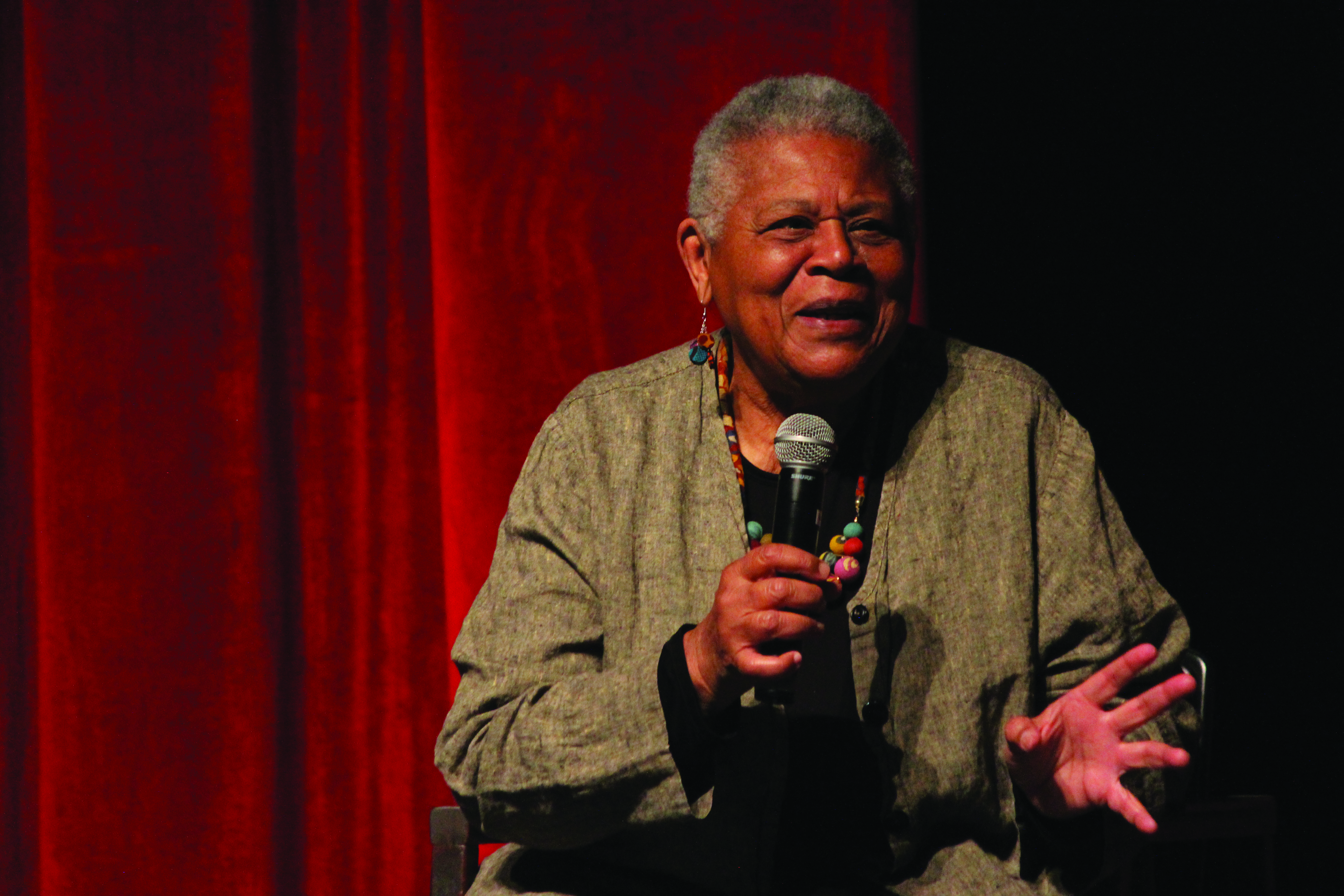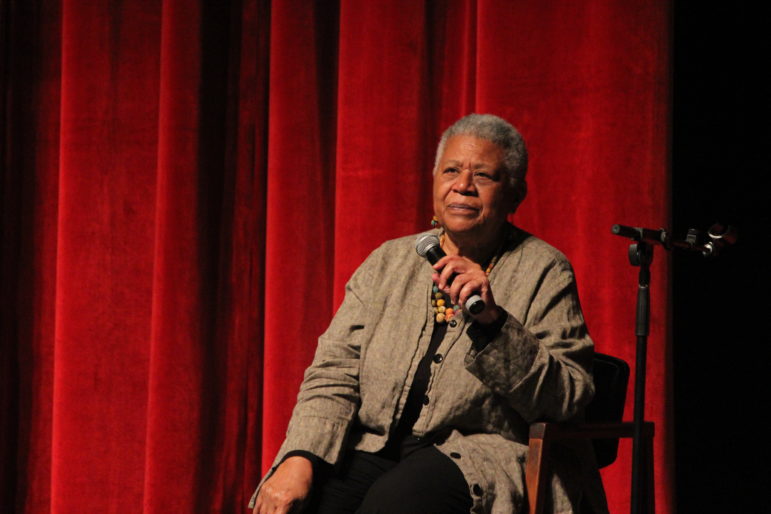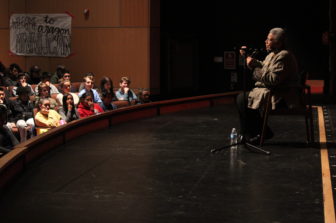

Minnijean Brown-Trickey, a member of the Little Rock Nine, spoke at the Aragon theater on April 19 during second and fourth period. This event, which was organized by the history and social studies departments, was open to all students who received an informational briefing.
The Little Rock Nine was a group of students who were the first African-Americans to attend a formerly segregated school in Little Rock, Arkansas, in 1957. On the first day of classes, the governor of Arkansas called the Arkansas National Guard to prevent the nine students from entering the school. Later that month, President Dwight Eisenhower sent in federal troops to ensure the Little Rock Nine could get into the school safely.
The teachers were able to organize the event through connections made through the Sojourn to the Past field trip available to juniors.
“[We were able to reach out to Trickey] through the founder of the Sojourn to the Past: Civil Rights field trip, Jeff Steinberg,” said history teacher and key organizer William Colglazier. “He worked with Minnijean on taking students to the South, talking about civil rights and activism … Minnijean is a kind of a co-director of the program, and so she goes on the trip, talks to the students, and I’ve kind of established a rapport with her, as I’ve gone on the trip twice.”
Students whose teacher gave an informational briefing during class or ones who attended a meeting during Flex or lunch about the Little Rock Nine and the Civil Rights Era could attend the event.
“Whatever you’re passionate about, that’s what you get involved in”
Some students found the speech to be an important message of what to pay attention to and be mindful of in a post-segregated America.
“I think it’s great that we’re having somebody who played a big role in the desegregation of schools come and speak to Aragon,” said senior Naomi Navarro.
Beyond the historical aspect of hearing Trickey speak, Aragon students and faculty are hoping a larger lesson about activism and problems with race and discrimination can be learned from her visit.
“I hope that we realize that this has been an issue for as long as we can remember, and I hope we can make connections between the segregation back then and how it’s still happening now,” said sophomore Mavi Eyuboglu. “But I also hope that it will give us hope, because we will see how far we’ve come, but we can learn how much left we have to go.”

As sophomore Shayan Tabrizi has experienced discrimination, he asked Trickey for advice.
“I just asked her about what a Middle Eastern student could do when being under backlash and harassed by being called a terrorist, bomber, etcetera,” he said. “Since I have experienced it firsthand, and at first she was shocked and upset and she apologized to me from her own point of view, but then went on to tell me that nobody should ever be criticized and that it’s just a filler word that people use just because they hate change. She told me to ignore it and keep my head up strong.”
In addition to experiences with discrimination today, students and faculty have questioned Trickey about current movements including March For Our Lives.
“The fact that kids aren’t safe in school, even though they think they are, got kids going, and they needed to,” Trickey said. “Because we as grownups, we weren’t protecting them. We aren’t protecting you. So you have to make us do that.”
Trickey emphasized the importance and power of the activist community.
“Whatever you’re passionate about, that’s what you get involved in,” Trickey said. “And once you get involved in one, you’re going to be involved in it all because the activist family is a very small family … They cross all kinds of lines, but once you start, then you’re hooked, and you’ll never go back.”



